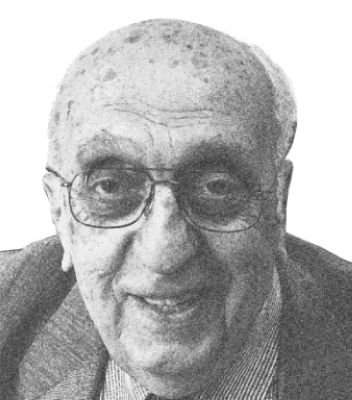It was significant that Clovis Maksoud, the former Arab League ambassador and a stalwart supporter of Palestinians, passed away on May 15, the day Palestinians and all other Arabs call Nakbeh (catastrophe).
It is the day when, in 1948, Israel was established in accordance with the UN Partition Plan that awarded Jews, unfairly, 55 per cent of the British Mandate and Palestinian Arabs only 45 per cent, mostly mountainous areas.
That coincidence further underlines the great affection, respect and admiration the Arab and Muslim worlds had for the 90-year-old US-born Lebanese-American former diplomat who had served as ambassador of the 22-member Cairo-based Arab League to India and Southeast Asia, the US and the United Nations.
Besides his diplomatic career, he also served as senior editor of the prominent Egyptian daily Al Ahram and of the Lebanese weekly Al Nahar.
After the devastating war with Israel in 1973, which the Arabs lost, Maksoud was sent to the US and the UN to combat what has been described as “negative Arab stereotyping in the American media”.
An English translation of his memoir “From the Confines of Memory: My journey with Arab Nationalism” is expected soon and will, hopefully, encourage other envoys to follow in his footsteps.
Maksoud was also important in the US academic world.
Michael C. Hudson, a former professor of Arab studies at Georgetown University, told mourners last week at the St. Peter’s and St. Paul’s Orthodox Churches in a suburb of Washington that Maksoud played “an indispensable role in the establishment of our Centre for Contemporary Arab Studies at Georgetown University”.
He said: “We were proud to have created an endowed chair at the centre in the name of Hala and Clovis Maksoud.” The former had earned her PhD in political science at Georgetown.
“The Arab world has lost one of its stellar public intellectuals, a man of vision and humanity. Of a long and distinguished career as journalist, diplomat and professor Clovis Maksoud steadfastly advocated for a socially conscious, inclusive, liberal Arab political order.
“Never descending to mean-spirited partisanship he fought against foreign domination, sectarianism and authoritarianism. He was a progressive Arab nationalist, unencumbered by slogans, factionalism and parochialism…. Along with legions of friends and admirers I will miss him deeply.”
John Duke Anthony, the founding president and chief executive officer at the Washington-based National Council on US-Arab Relations, also attended Maksoud’s funeral service.
In a lengthy statement, he said: “Whatever the subject he happened to be addressing, Clovis was invariably not only articulate; he was also frequently eloquent…. Who can forget Clovis’ forever repeating that, among the biggest obstacles to strengthening an expanding the Arab-US relationship were the United States history and policies with respect to Palestine? “These, he never tired of emphasising, lay at the heart of what he aptly termed America’s ‘crisis of conscience’.”
He added: “What [Clovis] epitomised — in his manners and elemental decency, in his unfailing kindness, and in his manifesting the gamut of Arab, Islamic, Middle Eastern Christian, Druze and other humanistic values, ideals and principles to which so many aspire — has left an indelible impression not just upon me but many.”
On a different note, an Arab-American activist was recruited this week for the first time to help draft the influential Democratic Party platform, that is, a statement of principles and policies. This unprecedented step is the result of the advocacy of Bernie Sanders, the forceful Democratic challenger of Hillary Clinton, who had repeatedly urged a fair Palestinian-Israeli settlement.
Sanders immediately used his new power, granted by the senior Democratic Party leaders, to name a well-known advocate for Palestinian rights to help draft the Democratic Party’s policy.
It is James Zogby, the president of the Arab American Institute.
The platform, according to The Washington Post, ”is among the most important party bodies, since it writes the policy on which the presidential candidate runs and around which Democrats are supposed to rally”, although the platform is nonbinding and some presidents ignored part of it in the past.
Hillary Clinton is known to be very supportive of Israel and, therefore, there is doubt the platform can tie her hands.
The writer is a Washington-based columnist.
